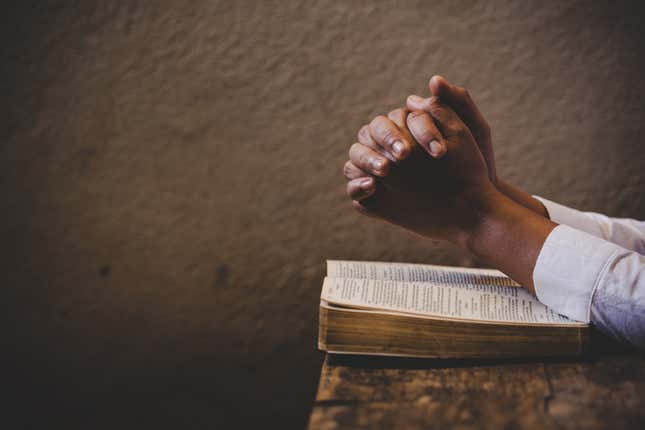
I’m not sure how I feel about the idea that Black people can’t be racist in general, but there is one hill I have no problem dying on: Black people can’t be racist towards white people. I don’t say that because of the notion that racism requires systemic power—if I’m being honest, I’m not even sure if I believe that—I’m saying that, in my opinion, the traditional definition of racism excludes Black people.
The Merriam-Webster dictionary has defined racism as “a belief that race is the primary determinant of human traits and capacities and that racial differences produce an inherent superiority of a particular race.”
Unlike “white power”—which essentially is a call for redundancy since white people are already at the top of the social food chain— “Black power” has never been a call for superiority, only equality. Our resentment towards white people has never been the result of a belief that the “human traits” of white people make them inherently inferior; our anti-white aggression is always a direct result of both historic and current white supremacy.
So, white people have recently discovered an entry in a prayer book titled “Prayer of a Weary Black Woman,” that begins with the words, “Dear God, Please help me to hate white people.”
The entry in the book A Rhythm of Prayer: A Collection of Meditations for Renewal—which, according to Newsweek, is available at major retailers like Target, Barnes & Noble and Amazon; is No. 1 on Amazon’s Christian Meditation Worship & Devotion section; and is a New York Times bestseller—was written by Chanequa Walker-Barnes, aka Dr. Chanequa.
From Newsweek:
“Dear God, Please help me to hate white people,” Walker-Barnes writes. “Or at least to want to hate them. At least, I want to stop caring about them, individually and collectively. I want to stop caring about their misguided, racist souls, to stop believing that they can be better, that they can stop being racist.”
She goes on in the prayer to say she wants help to hate moderate, “nice” white people who disguise their racism by acting pleasantly toward Black people but who do not take an action to combat white supremacy.
“My prayer is that you would help me to hate the other white people—you know, the nice ones,” Walker-Barnes writes. “The Fox News–loving, Trump-supporting voters who ‘don’t see color’ but who make thinly veiled racist comments about ‘those people.’ The people who are happy to have me over for dinner but alert the neighborhood watch anytime an unrecognized person of color passes their house.”
Predictably, white people who discovered the prayer decided to ignore all context and proceeded to clutch their “OMG, do the negroes not like us?” pearls.
Personally, I’m just not sure what the big deal is. Clearly, Walker-Barnes isn’t “racist,” because she actually needs help hating white people.
My version of this prayer would have been much shorter:
“Dear God, clearly, you already knew what you were doing when you made me, so how about you just stop the Atlanta Falcons from fucking up at the Super Bowl again?”
Not only is Walker-Barnes so not “racist” that she needs divine assistance in maintaining a hatred for the color un-blessed, but she even gave her benevolent God an option B.
“Lord, if you can’t make me hate them, at least spare me from their perennial gaslighting, whitemansplaining, and white woman tears,” she wrote.
Anyway, in a Twitter thread, Walker-Barnes defended her prayer and explained that her writing it was a direct response to racism that she faced...by a white friend. (Which means that even if we could be racist, our “I have a white friend” excuse would hit much differently.)
“What’s wild is I wrote that prayer after a White person - someone I would have called a friend at the time - dropped the N-word in a casual conversation,” she wrote. “Y’all, I’m one generation removed from sharecropping. That word is traumatic AF.”
In a follow-up tweet, she explained that she “took my rage to God in prayer. I owned it. I was truthful to God about what I was struggling with. And I prayed for God not to let anger and hatred overwhelm me.”
According to Newsweek, the book that the prayer is featured in describes itself as a book “for the weary, the angry, the anxious, and the hopeful,” and it says that “this collection of moving, tender prayers offers rest, joyful resistance, and a call to act.”
If we’re being honest, white people are lucky that a lot of Black people deal with their weariness and aggression towards white people and white supremacy by, well, praying on it.

